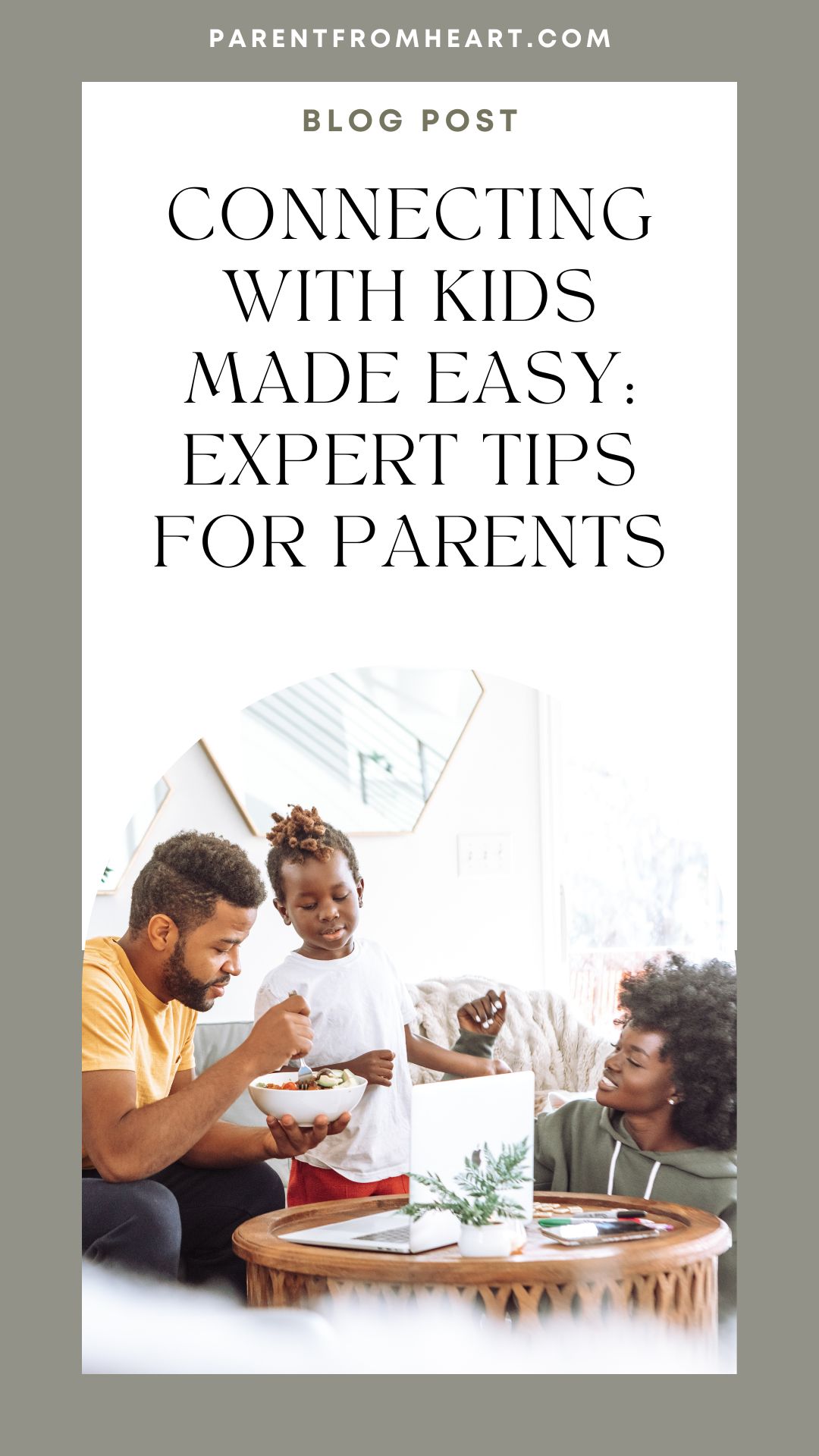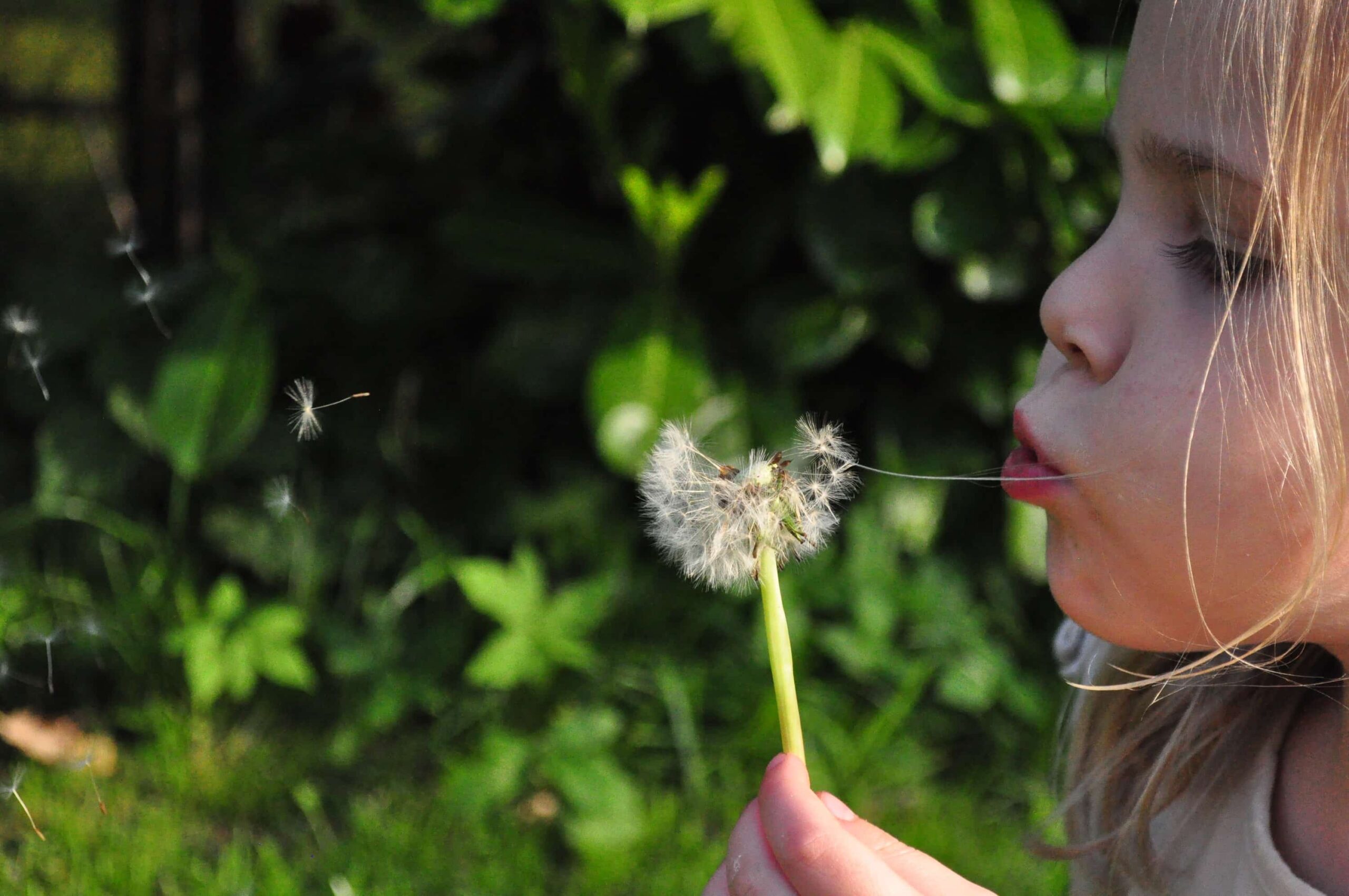Table of Contents
Connecting with kids as they grow is one of the age-old struggles of parenthood. Just when you think you’ve got it figured out, they hit a new developmental milestone, and bam, you’re back at square one.
Connection isn’t something you establish once and never think about again. It’s something you constantly have to work at, prioritize, and invest in. To make matters more complicated, your kids are not blank slates. They have unique personalities and temperaments that may, unfortunately, clash with your own.
I have two sons who are extremely different and need to connect with me in ways that best suit them. One of my sons loves cuddles and demands my time and attention. The other is more reserved, and connection for him looks like hours of showing me his Minecraft world. The kicker is I really don’t enjoy Minecraft. I have to make a concerted effort to enthusiastically watch him mine virtual resources because that is his way of connecting with me.
Connecting with kids may look different for you based on the kids you have, but also how you define connection.
What Does Connection Actually Mean?

The word “connection” commonly pops up when you read about positive parenting or having an authoritative approach to raising kids. But what does connecting with kids really mean?
To me, connection means:
- Safety
- Security
- Love
- Acceptance
Connection is a mutually positive and nurturing relationship between parents and kids. To be connected with your kids means your relationship is built on trust, understanding, and open communication. Connection is the moments of laughter and joy but also the times of vulnerability and sadness. It’s the ability for your kids to come to you when they are happy, sad, angry, or frightened, knowing you will be there to love and support them without judgment and criticism.
Connection and Attachment
You can’t talk about connection without considering attachment.
Attachment theory looks at how a child feels safe, secure, and protected. A sensitive, loving, and responsive parent will create a secure attachment. Research shows that attachment is a powerful predictor of later social and emotional outcomes.
Attachment parenting is a modern approach based on the idea that how a parent responds to their baby’s needs has long-term effects on emotional health and relationships. It includes things like co-sleeping, breastfeeding, and baby-wearing. Attachment parenting isn’t for everyone, but that doesn’t mean you can’t connect with your kids.
Attachment happens throughout childhood. It is a gradual process as your child’s feelings towards you evolve. A secure attachment gives your child the confidence to explore more independently. Connection is an extension of attachment that involves things like discipline, communication, and autonomy.
Connecting with Kids: What’s All the Fuss About?

A positive parent-child connection means better outcomes later in life. But it can also affect day-to-day behaviors.
Connected kids make better choices. When you have a positive relationship with your kids, they are more likely to adopt your values and make decisions accordingly. For example, my family values mutual respect and talking with kindness. The more time I make for connection with my kids, the more I see them being conscious of their language.
When kids feel connected to their parents, they aren’t afraid to fail. Connection fosters a growth mindset. According to Carol Dweck, someone with a growth mindset believes they can improve their intelligence or abilities. So, if your kids have a growth mindset, they will embrace challenges, learn from mistakes, and be more resilient.
Your relationship with your kids shapes how they view the world and cope with emotions. When your kids can trust you to handle their big emotions and validate their feelings, they develop healthy emotional regulation skills. They learn how to express themselves and feel confident in the person they are.
Fostering a positive connection with your kids is also an effective way of encouraging better behavior. “Bad” behavior is an external response to internal disconnection and dysregulation. When your kids feel seen, heard, and valued, they will act accordingly.
What Causes Disconnection?
Being disconnected from your kids affects the whole family. Disconnection shifts the dynamic in your home. Unfortunately, life is busy and chaotic for most parents, and connecting with your kids sometimes falls by the wayside.
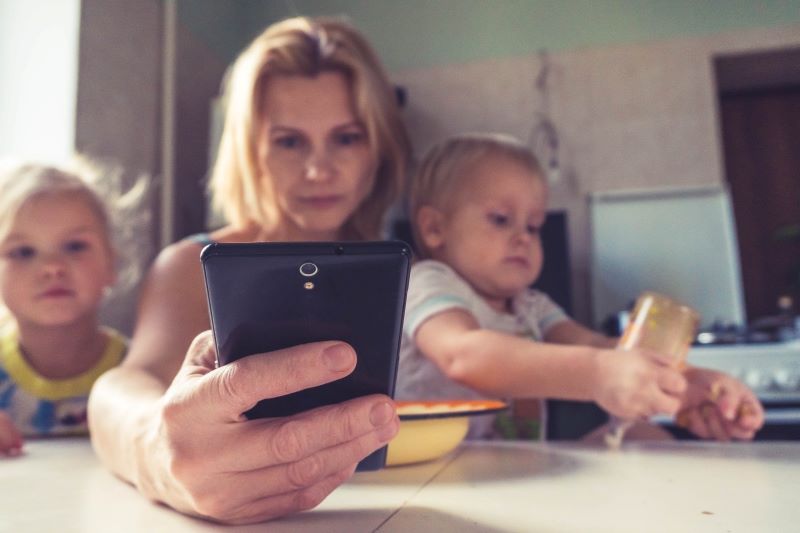
Screentime
Now, I’m not here to demonize screens. I think parents experience enough stress without the added judgment for the amount of screen time their kids have. However, there is no denying that screens can distract from meaningful connection time. And I’m not just talking about your kids’ screen time.
A study on the impact of parents’ mobile device use on parent-child interaction found that parents who use devices during interactions with their kids are less aware of and less responsive to their children, both verbally and non-verbally. It also showed that the relationships kids have with technology, like phones and TV, reflect that of their parents.
Kids need our attention, and if they aren’t getting it, they may resort to negative attention-seeking behaviors or negative interactions. Unfortunately, parents are quick to respond to “bad” behavior with punishment, which creates more disconnection.
Time Management
Life is busy. But we have to make time for our kids and ourselves. I hate the saying, “You can’t pour from an empty cup,” because it feels like self-care is one more thing to add to my to-do list. Unfortunately, it’s true. You can’t connect with your kids when you feel frustrated, overwhelmed, irritated, and distracted.
But don’t put pressure on yourself to carve out chunks of time for your kids. Deep connection can happen in the non-obvious moments. Conversations around the dinner table, family game night, or a 10-minute debrief before bed can be just the connection point your kids need.
It’s not the quantity of the time you spend, but the quality. Obviously, the more time you spend with your kids, the better. But parents have enough on their plates without adding a heaping helping of guilt and anxiety. Small pockets of connection time can be more impactful than you realize.
Lack of Trust
Kids need boundaries to feel safe. But too often, parents are overwhelmed and fail to set boundaries or are inconsistent in enforcing them. How can our kids trust us when they don’t know what to expect from us?
Discipline and communication are crucial in building the trust bond between parents and kids. Connecting with kids means following through, keeping your promises, and providing clear consequences. Your kids will struggle to connect with you if they don’t trust you.
Tips For Building a Solid Relationship with Your Kids
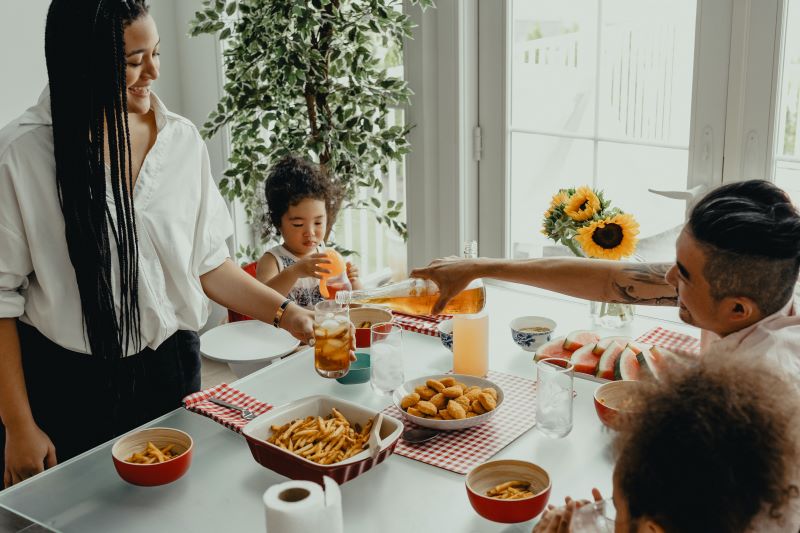
There are numerous things you can do to strengthen the connection with your kids, but here are three of the most important.
Discipline
Positive discipline and connection go hand-in-hand. It’s important to note that discipline is not the same as punishment. Punishment is about obedience and coercion and is rooted in criticism and shame. Discipline is about collaboration and cooperation and is rooted in learning and respect.
When you use discipline, you focus on guiding and shaping your children’s behavior through communication, boundaries, and consistent expectations. Discipline improves your connection with your kids because it is about being responsive to them rather than reacting to their behavior.
Here are some ways to use positive discipline to preserve your connection with your kids.
- Positive Reinforcement: Praise the behavior you want to see more of rather than focusing on misbehavior. Be sure to also acknowledge the effort your children put into acting better.
- Clear Expectations: Create rules collaboratively with your kids and provide clear, logical consequences.
- Time-In Instead of Time-Out: Rather than isolating your kids when they do something wrong, connect with them instead. Sit and discuss their behavior and emotions. A time-in fosters self-awareness and self-regulation and makes them feel supported and loved.
Communication
Communication can make or break connection. Not only is what you say important but also how you say it.
What your kids hear and interpret has a significant impact on their behavior and how they perceive their relationship with you. The tricky part of communicating with your kids is that you constantly have to adjust your strategy as they develop.
Here are some ways to use communication to increase connection with your kids.
- Active Listening: Sometimes, you need to stop talking and listen. Communication is just as much about what you don’t say as what you do. When you actively listen to your kids, you show them you value their thoughts and respect their emotions. Give them your full attention, make eye contact, and validate their feelings.
- Use Positive Language: Frame requests and instructions in a positive and respectful way. If you are doing or saying something that you wouldn’t do or say to another adult you liked and respected, you should pause and assess. Negative language perpetuates negative behavior. Also, when we criticize our kids, they internalize it. Kids don’t have the capacity to separate their behavior from themselves. So, when you tell your child their behavior was stupid, they hear you saying they are stupid.
Routine
Routines create a structured framework that keeps your home running. But more than that, they are an opportunity to create connection habits. Routines also help everyone know what to expect and what is expected of them.
For example, my family knows that we eat dinner together at the table, and we will all have a turn to answer 4 questions.
- What made you feel good today?
- What made you feel bad today?
- What was something that made you laugh?
- How did you fail today, and what did you learn from it?
We also read a chapter book every night and leave time for the inevitable questions that I am bombarded with before bed.
Although we have routines, we call them our “family rhythms” because the word “routine” feels too prescriptive for me. A rhythm seems more gentle, more go-with-the-flow. It allows us to make time for connection but also gives us the flexibility to change things up as life happens.
Strategies for Connecting with Kids in a Meaningful Way
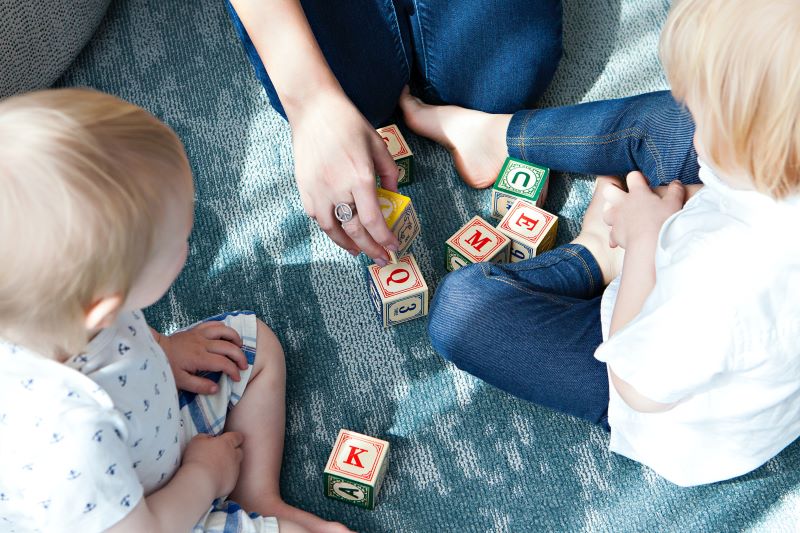
Connection requires action, so here are three strategies you can use in your home today.
Family Meeting
I am a huge fan of the family meeting. Get together once a week and discuss schedules, conflicts, rules, and weekend plans. It’s a time for your kids to actively participate in family life and make them feel connected and respected.
Get Hugging
Author and family therapist Virginia Satir once wrote, “We need four hugs a day for survival. We need eight hugs a day for maintenance. We need 12 hugs a day for growth.”
Now, there is no scientific evidence that we need a certain amount of hugs a day, but there are studies showing that hugs cause our bodies to release oxytocin and make us feel more connected to those closest to us.
Not all kids like hugs, and I have one of those. But chat with your kids and come up with other options if hugging isn’t their thing. My son likes it when I rub his back or hold his hand when we go for walks.
Play
Play is the language of children. When your kids ask you to play with them, they are inviting you into their worlds and asking you to connect with them.
For some parents, play comes easily. Sadly, I’m not one of those parents. I remember crawling through the bushes, roaring like a dinosaur, while my son stalked me. He was having the best time, and I was thinking about how overrated parenting is. Now there is less roaring (from my aside, at least) and more Minecraft. But my son still wants me to play with him. I struggle to connect with him, and as frustrating as those long hours of Lego and Minecraft can be, I know the value they have for our relationship.
Have You Connected with Your Kids Today?
Connection doesn’t have to be complicated. It’s about making time for your kids and meeting them where they’re at. Don’t miss out on connecting with your kids because you are waiting for the perfect moment. The perfect moment doesn’t exist. Life is messy and wonderful, and connection happens in the smallest moments.
Was this article helpful? Do you have any connection tips to share?
Like this post? Click on the image below to share this on Pinterest – Thank you!
